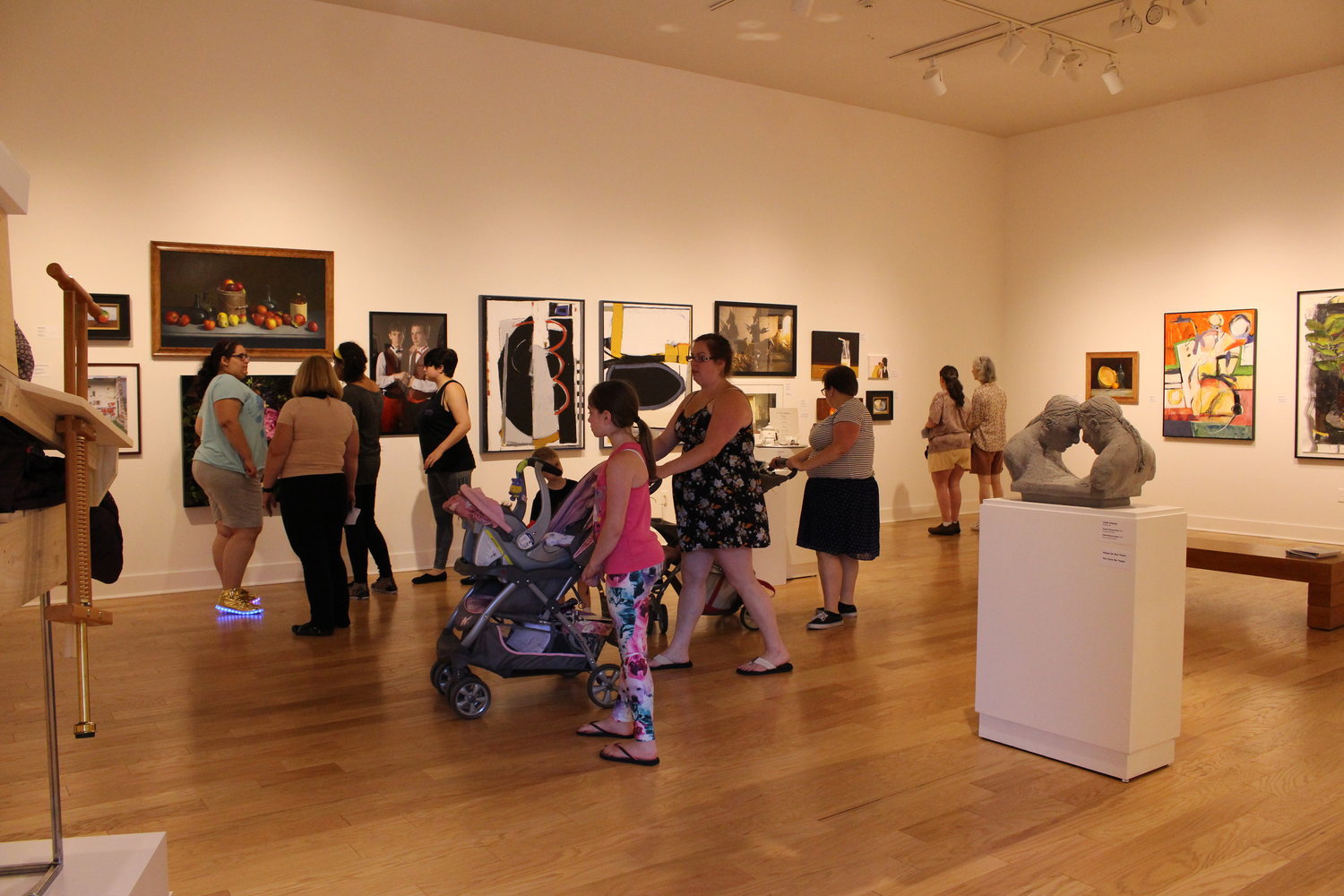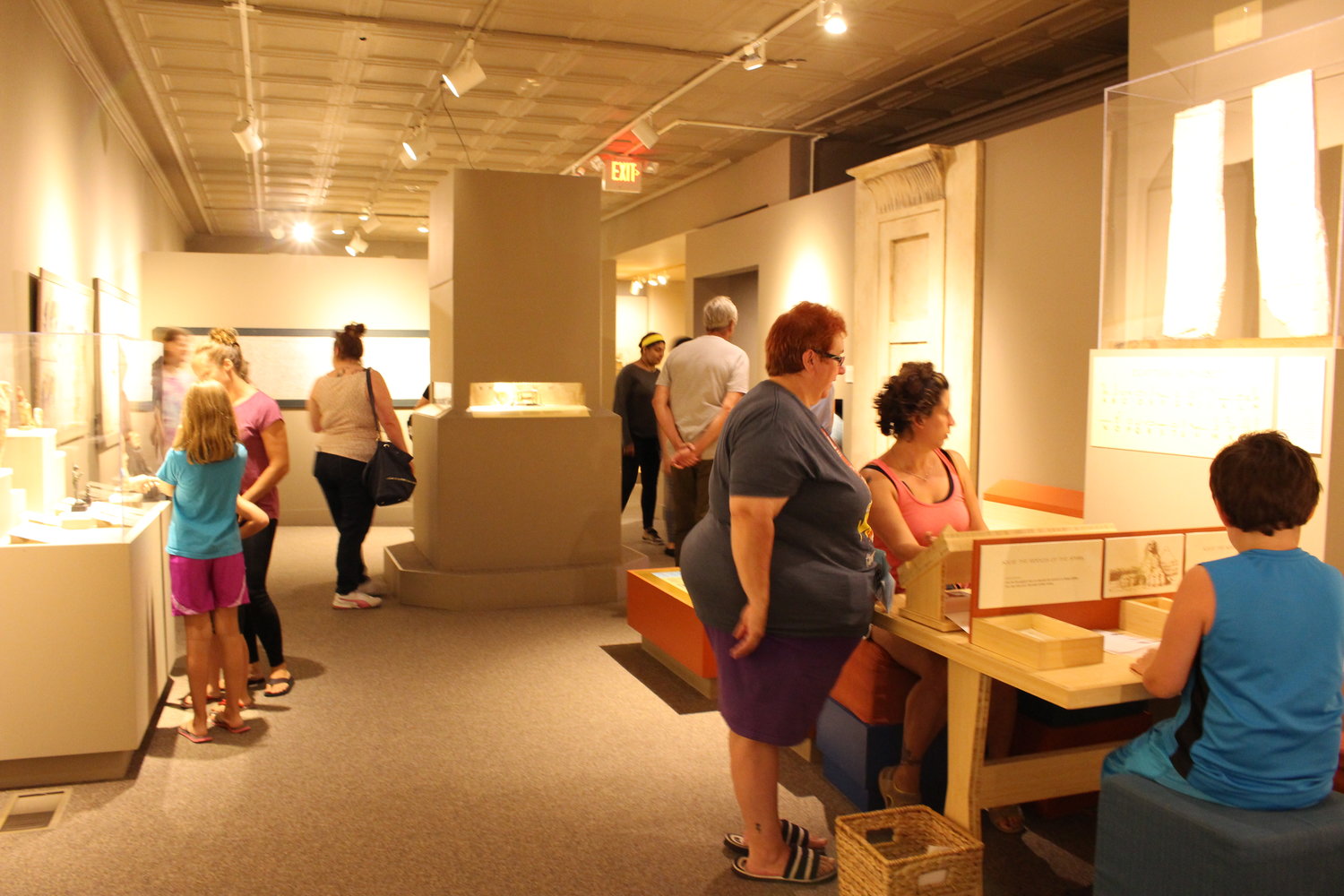TIPS FOR FAMILIES
Preview for Families and Teachers
- Curious about what to expect during your visit? Watch our 3-minute “Preview for Families and Teachers” video above or here.
BEFORE YOU VISIT
- Tell your children the overall plan for the visit. (What will they do? How long will they be there for? Will they break for snack?)
- Ask the children if there is anything they especially want to see or do while at the Museum. Research shows that children learn more when they have a choice in what they study. You may want to preview the Fitchburg Art Museum website to help them decide.
- Do not plan to see everything. Pick one or two things to see or do. It’s better to make a return visit than to experience museum fatigue.
- Discuss the rules in the art museum. No touching the art because the oils and salts in your fingers damage the art, and no running in the galleries because you, someone else or the art can get hurt.
- Pack a sketch pad and pencils if your child likes to draw or write. Give them time to draw or write their reactions to the art.
- The Museum is handicapped accessible, but call ahead to inquire about any special arrangements you might need.


Upon Arriving
- Ask Reception Desk staff where to find the bathrooms and exhibitions you want to see.
- Review the rules of the Museum. Remind children to touch with their eyes only, use their normal speaking voices, and to walk (not run).
During your visit
- Take time to look at one or two artworks and share your reactions.
- Good questions to ask are:
- What is the first thing you noticed?
- What colors or shapes do you see?
- What does the artwork remind you of?
- What is going on in this artwork?
- What feeling does the artwork posess or how does it make you feel?
- What do you see that makes you say that?
- What else do you see?
Remember, children may interpret artwork differently than an adult, and often they give adults a new and surprising way to see art.
GALLERY ACTIVITIES FOR FAMILIES
Walk into a Painting:
Pretend you could shrink yourself and walk into one of the paintings, prints, or photographs. What would you see there? What would it smell like? What textures could you feel? Would it be hot or cool there? Would you feel a breeze? If there are people in the artwork, what would you say to them, or what would you do together? What do you think is going to happen next?
Comparison Word Games:
Explain what a simile is to your children. (A simile is a figure of speech in which two unlike things are compared, often using the words “like” or “as.” Example: ” You have eyes like stars.”) Find an artwork that everyone likes, and take turns thinking of similes to describe it. Be sure to describe a particular part of the artwork in your simile. “The blue lines in the upper corner of the painting are like spaghetti.” After describing an artwork this way for a while, think of a new title for the artwork based on the similies your family liked best.
Color/Line/Shape Hunt:
Younger children might enjoy walking through the gallery looking for a particular color, line (curvy or zigzaggy straight, etc.), or shape (circles, triangles, squares, etc.). Notice many shades of one color, how lines can be the edges of shapes, and whether or not an artwork has shapes with straight lines or curvy lines. Variation: Before your museum visit, go to a paint store and get several swatches of paint colors. Bring them to the Museum and try to find those colors in the artworks.
Art Critic Game:
Select one gallery with many artworks in it. Decide on some unusual criteria for judging artworks, and then ask your children to select an artwork that best fits each criterion. Some examples of criteria might be:
- required the longest time to make
- could be used to help solve a world problem
- your grandmother would like it
- required the most skill to make
- could become part of a machine
- tells the most interesting story
- has the creepiest mood
Be sure to ask your children to explain how their choice of artwork fits the criterion.



